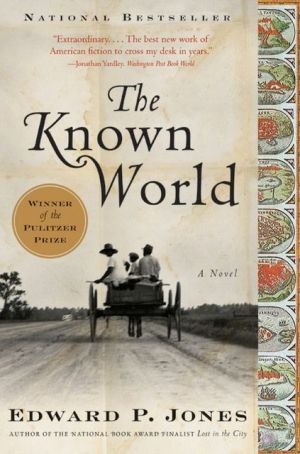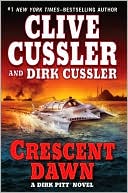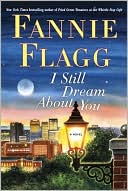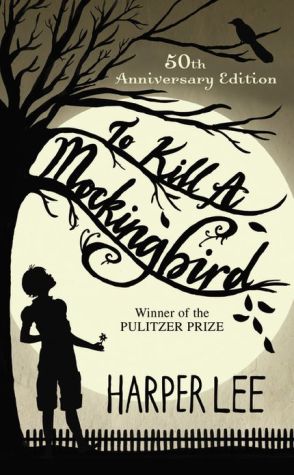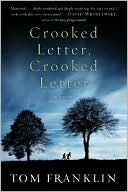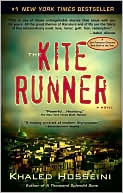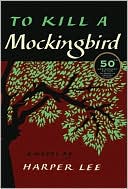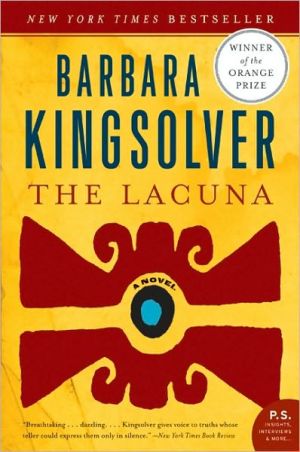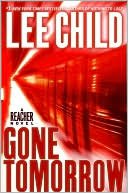The Known World
Henry Townsend, a black farmer, bootmaker, and former slave, has a fondness for Paradise Lost and an unusual mentor -- William Robbins, perhaps the most powerful man in antebellum Virginia's Manchester County. Under Robbins's tutelage, Henry becomes proprietor of his own plantation -- as well as of his own slaves. When he dies, his widow, Caldonia, succumbs to profound grief, and things begin to fall apart at their plantation: slaves take to escaping under the cover of night, and families who...
Search in google:
One of the most acclaimed novels in recent memory, The Known World is a daring and ambitious work by Pulitzer Prize winner Edward P. Jones. The Known World tells the story of Henry Townsend, a black farmer and former slave who falls under the tutelage of William Robbins, the most powerful man in Manchester County, Virginia. Making certain he never circumvents the law, Townsend runs his affairs with unusual discipline. But when death takes him unexpectedly, his widow, Caldonia, can't uphold the estate's order, and chaos ensues. Jones has woven a footnote of history into an epic that takes an unflinching look at slavery in all its moral complexities.The Washington PostThe bizarre world of American slavery has been the subject of much fiction, some of it uncommonly good, from Harriet Beecher Stowe to William Faulkner to Toni Morrison. This extraordinary novel -- the best new work of American fiction to cross my desk in years -- takes as its subject one of the most peculiar anomalies of that endlessly provocative and troubling subject: In the antebellum South, where whites systematically enslaved blacks, there were free blacks who themselves owned black slaves. — Jonathan Yardley
The Known World\ \ By Edward P. Jones\ Harper Collins Publishers\ Copyright © 2003 Edward P. Jones All right reserved. ISBN: 0060557540 \ \ Chapter One\ Liaison. The Warmth of Family.\ Stormy Weather.\ \ The evening his master died he worked again well after he ended the day for the other adults, his own wife among them, and sent them back with hunger and tiredness to their cabins. The young ones, his son among them, had been sent out of the fields an hour or so before the adults, to prepare the late supper and, if there was time enough, to play in the few minutes of sun that were left. When he, Moses, finally freed himself of the ancient and brittle harness that connected him to the oldest mule his master owned, all that was left of the sun was a five-inch-long memory of red orange laid out in still waves across the horizon between two mountains on the left and one on the right. He had been in the fields for all of fourteen hours. He paused before leaving the fields as the evening quiet wrapped itself about him. The mule quivered, wanting home and rest. Moses closed his eyes and bent down and took a pinch of the soil and ate it with no more thought than if it were a spot of cornbread. He worked the dirt around in his mouth and swallowed, leaning his head back and opening his eyes in time to see the strip of sun fade to dark blue and then to nothing. He was the only man in the realm, slave or free, whoate dirt, but while the bondage women, particularly the pregnant ones, ate it for some incomprehensible need, for that something that ash cakes and apples and fatback did not give their bodies, he ate it not only to discover the strengths and weaknesses of the field, but because the eating of it tied him to the only thing in his small world that meant almost as much as his own life.\ This was July, and July dirt tasted even more like sweetened metal than the dirt of June or May. Something in the growing crops unleashed a metallic life that only began to dissipate in mid-August, and by harvest time that life would be gone altogether, replaced by a sour moldiness he associated with the coming of fall and winter, the end of a relationship he had begun with the first taste of dirt back in March, before the first hard spring rain. Now, with the sun gone and no moon and the darkness having taken a nice hold of him, he walked to the end of the row, holding the mule by the tail. In the clearing he dropped the tail and moved around the mule toward the barn.\ The mule followed him, and after he had prepared the animal for the night and came out, Moses smelled the coming of rain. He breathed deeply, feeling it surge through him. Believing he was alone, he smiled. He knelt down to be closer to the earth and breathed deeply some more. Finally, when the effect began to dwindle, he stood and turned away, for the third time that week, from the path that led to the narrow lane of the quarters with its people and his own cabin, his woman and his boy. His wife knew enough now not to wait for him to come and eat with them. On a night with the moon he could see some of the smoke rising from the world that was the lane - home and food and rest and what passed in many cabins for the life of family. He turned his head slightly to the right and made out what he thought was the sound of playing children, but when he turned his head back, he could hear far more clearly the last bird of the day as it evening-chirped in the small forest far off to the left.\ He went straight ahead, to the farthest edge of the cornfields to a patch of woods that had yielded nothing of value since the day his master bought it from a white man who had gone broke and returned to Ireland. "I did well over there," that man lied to his people back in Ireland, his dying wife standing hunched over beside him, "but I longed for all of you and for the wealth of my homeland." The patch of woods of no more than three acres did yield some soft, blue grass that no animal would touch and many trees that no one could identify. Just before Moses stepped into the woods, the rain began, and as he walked on the rain became heavier. Well into the forest the rain came in torrents through the trees and the mighty summer leaves and after a bit Moses stopped and held out his hands and collected water that he washed over his face. Then he undressed down to his nakedness and lay down. To keep the rain out of his nose, he rolled up his shirt and placed it under his head so that it tilted just enough for the rain to flow down about his face. When he was an old man and rheumatism chained up his body, he would look back and blame the chains on evenings such as these, and on nights when he lost himself completely and fell asleep and didn't come to until morning, covered with dew.\ The ground was almost soaked. The leaves seemed to soften the hard rain as it fell and it hit his body and face with no more power than the gentle tapping of fingers. He opened his mouth; it was rare for him and the rain to meet up like this. His eyes had remained open, and after taking in all that he could without turning his head, he took up his thing and did it. When he was done, after a few strokes, he closed his eyes, turned on his side and dozed. After a half hour or so the rain stopped abruptly ...\ (Continues...)\ \ \ \ \ Excerpted from The Known World by Edward P. Jones\ Copyright © 2003 by Edward P. Jones\ Excerpted by permission. All rights reserved. No part of this excerpt may be reproduced or reprinted without permission in writing from the publisher.\ \
\ QBR-The Black Book Review“Complex, beautifully written, and breathtaking...the book will knock the wind out of you with the depth of its compassion.”\ \ \ \ \ The New York TimesAt the end of Edward P. Jones's stunning new antebellum novel, an artist recreates the book's plantation setting as "a map of life made with every kind of life man has ever thought to represent himself." One of the characters says, "It is what God sees when He looks down."\ The author's viewpoint has the same effect in this book about slavery, property, freedom and family, all in a most unusual setting. With hard-won wisdom and hugely effective understatement, Mr. Jones explores the unsettling, contradiction-prone world of a Virginia slaveholder who happens to be black. — Janet Maslin\ \ \ \ The New YorkerOn a small plantation in Manchester County, Virginia, in the eighteen-fifties, a freed black man named Henry Townsend lives with his wife and the thirty-three slaves he has bought, some with the help of his former owner. This kaleidoscopic first novel depicts daily life for Henry and his friends (“members of a free Negro class that, while not having the power of some whites, had been brought up to believe that they were rulers waiting in the wings”); for the plantation’s slaves, one of whom believes that he, too, will be transformed into an owner after Henry’s death; and for the county’s white inhabitants, who coexist uneasily with their slaves and their emancipated black neighbors. Jones has written a book of tremendous moral intricacy: no relationship here is left unaltered by the bonds of ownership, and liberty eludes most of Manchester County’s residents, not just its slaves.\ \ \ \ \ The Washington PostThe bizarre world of American slavery has been the subject of much fiction, some of it uncommonly good, from Harriet Beecher Stowe to William Faulkner to Toni Morrison. This extraordinary novel -- the best new work of American fiction to cross my desk in years -- takes as its subject one of the most peculiar anomalies of that endlessly provocative and troubling subject: In the antebellum South, where whites systematically enslaved blacks, there were free blacks who themselves owned black slaves. — Jonathan Yardley\ \ \ \ \ Publishers WeeklyIn a crabbed, powerful follow-up to his National Book Award-nominated short story collection (Lost in the City), Jones explores an oft-neglected chapter of American history, the world of blacks who owned blacks in the antebellum South. His fictional examination of this unusual phenomenon starts with the dying 31-year-old Henry Townsend, a former slave-now master of 33 slaves of his own and more than 50 acres of land in Manchester County, Va.-worried about the fate of his holdings upon his early death. As a slave in his youth, Henry makes himself indispensable to his master, William Robbins. Even after Henry's parents purchase the family's freedom, Henry retains his allegiance to Robbins, who patronizes him when he sets up shop as a shoemaker and helps him buy his first slaves and his plantation. Jones's thorough knowledge of the legal and social intricacies of slaveholding allows him to paint a complex, often startling picture of life in the region. His richest characterizations-of Robbins and Henry-are particularly revealing. Though he is a cruel master to his slaves, Robbins is desperately in love with a black woman and feels as much fondness for Henry as for his own children; Henry, meanwhile, reads Milton, but beats his slaves as readily as Robbins does. Henry's wife, Caldonia, is not as disciplined as her husband, and when he dies, his worst fears are realized: the plantation falls into chaos. Jones's prose can be rather static and his phrasings ponderous, but his narrative achieves crushing momentum through sheer accumulation of detail, unusual historical insight and generous character writing. Agent, Eric Simonoff. (Sept.) Forecast: This is a new tack for Jones, whose collection Lost in the City was set in Washington, D.C., in the 1960s and '70s. Amistad is sending the novel off with a bang-a 10-city author tour, a 20-city national radio campaign-and it should attract considerable review attention. Copyright 2003 Reed Business Information.\ \ \ \ \ Library JournalThis ambitious first novel by National Book Award nominee Jones (Lost in the City: Stories) looks at slavery from an unusual angle. Henry Townsend is a former slave who was purchased and freed by his own father. Through hard work, he has acquired 50 acres of farmland in Virginia. Given the slave-based agricultural economy, Townsend believes that the logical (and legal) way to work the land is with slaves, and, eventually, he owns more than 30. Although he is less brutal than his neighbors, most of his slaves dream of escaping north. When they try, Townsend must pay the white patrollers to return them or be seen as irresponsible. But as rumors of bloody slave rebellions spread through the South, unscrupulous bounty hunters begin to round up free blacks, Native Americans, and white orphans along with the escapees. By focusing on an African American slaveholder, Jones forcefully demonstrates how institutionalized slavery jeopardized all levels of civilized society so that no one was really free. A fascinating look at a painful theme, this book is an ideal choice for book clubs. Highly recommended. [Previewed in Prepub Alert, LJ 5/15/03.]-Edward B. St. John, Loyola Law Sch. Lib., Los Angeles Copyright 2003 Reed Business Information.\ \ \ \ \ Kirkus ReviewsSlave-owning by free blacks in antebellum America is the astonishingly rich subject of this impressively researched, challenging novel debut by Faulkner Award-winning Jones (stories: Lost in the City, 1992). Set mostly in the period 1830-50, many nested and interrelated stories revolve around the death of black Virginia farmer and slaveholder Henry Townsend, himself a former slave who had purchased his own freedom, as was-and did-his father Augustus, a gifted woodcarver. Jones's flexible narrative moves from the travail of Augustus and his wife Mildred through Henry's conflicted life as both servant and master, to survey as well the lives of Armstrong slaves, from their early years on to many decades after Henry's passing. The first hundred pages are daunting, as the reader struggles to sort out initially quickly glimpsed characters and absorb Jones's handling of historical background information (which virtually never feels obtrusive or oppressive, thanks to his eloquent prose and palpable high seriousness). The story steadily gathers overpowering momentum, as we learn more about such vibrant figures as Henry's introspective spouse Caldonia, his wily overseer Moses, the long-suffering mutilated slave Elias and his crippled wife Celeste, the brutal "patrollers" charged with hunting down runaways (one of whom, duplicitous Harvey Travis, is a villain for the ages), and county sheriff John Skiffington, a decent man who nevertheless cannot shrug off "responsibilities" with which his culture has provisioned, and burdened, him. The particulars and consequences of the "right" of humans to own other humans are dramatized with unprecedented ingenuity and intensity, in a harrowing tale thatscarcely ever raises its voice-even during a prolonged climax when two searches produce bitter results and presage the vanishing of a "known world" unable to isolate itself from the shaping power of time and change. This will mean a great deal to a great many people. It should be a major prize contender, and it won't be forgotten. Author tour. Agent: Eric Simonoff/Janklow & Nesbit\ \ \ \ \ San Diego Union-Tribune"’The Known World’ is a great novel, one that may eventually be placed with the best of American Literature."\ \ \ \ \ Starred Library Journal” An exemplar of historical fiction. . . [it] will subdue your preconceptions, enrich your perceptions and trouble your sleep.. . .The way Jones tells this story. . .recalls Cormac McCarthy, William Faulkner and Gabriel Garcia Marquez.”\ \ \ \ \ O Magazine"One of those rare works of fiction that both wound and heal."\ \ \ \ \ Booklist (starred)“A profoundly beautiful and insightful look at American slavery and human nature.”\ \ \ \ \ Book Magazine"Vivid....[An] epic novel."\ \ \ \ \ Newsday" An exemplar of historical fiction. . . [it] will subdue your preconceptions, enrich your perceptions and trouble your sleep.. . .The way Jones tells this story. . .recalls Cormac McCarthy, William Faulkner and Gabriel Garcia Marquez."\ \ \ \ \ Speakeasy"If Jones. . .keeps up this level of work, he’ll equal the best fiction Toni Morrison has written about being black in America."\ \ \ \ \ St. Louis Post-Dispatch"Brilliant...Jones’ novel movingly evokes one small landscape of a larger map that so stubbornly yields up its truths today"\ \ \ \ \ The Washington Times"Stunning....Pitch-perfect....Too much cannot be said about Mr. Jones gifts as a storyteller and a stylist."\ \ \ \ \ Time“A masterpiece that deserves a place in the American literary canon.”\ \ \ \ \ Newsweek"Heartbreaking....fascinating."\ \ \ \ \ Time magazine“A masterpiece that deserves a place in the American literary canon.”\ \ \ \ \ Baltimore Sun"Fascinating...poignant....[A] complex and fine novel."\ \ \ \ \ The New Yorker"Jones has written a book of tremendous moral intricacy."\ \ \ \ \ Fort Worth Star-Telegram"Once you start the book you are hooked....Consider this novel necessary reading."\ \ \ \ \ New York Times"Stunning....His first novel is...likely to win acclaim."\ \ \ \ \ Dallas Morning News"Heartrending....[The Known World] walks with the pace and solemnity of the Bible."\ \ \ \ \ Entertainment Weekly"Breathtaking....A fascinating counterweight to Toni Morrison’s Beloved....It is essential reading."\ \ \ \ \ Essence"An incredible saga."\ \ \ \ \ Chicago Tribune Books"A grand and inspired work of historical fiction. . .[It] deserves every word of praise that comes its way."\ \ \ \ \ Seattle Times"Extraordinary.....Nothing...quite prepares readers for the imaginative leaps and technical prowess of ‘The Known World.’"\ \ \ \ \ Atlanta Journal-Constitution"Brilliant....Glorious....[The Known World] belongs on the shelf with other classics of slavery, like Toni Morrison’s "Beloved."\ \ \ \ \ QBR: The Black Book Review"Complex, beautifully written, and breathtaking...the book will knock the wind out of you with the depth of its compassion."\ \ \ \ \ People (4-Starred Critic's Choice)“This...magical novel will touch you in a profound way.”\ \ \ \ \ Philadelphia Inquirer"Fascinating . . .There is grief and fear, genuine affection an envy in this complex and fine novel."\ \ \ \ \ USA Today"Beautifully written . . .[it] ought to enjoy the massive readership that Charles Frazier’s runaway hit, Cold Mountain did."\ \ \ \ \ Boston Globe"Destined for a permanent spot on the...shelf of great American novels about slavery, next to Morrison...and Faulkner."\ \ \ \ \ Time Out New York"A major achievement."\ \ \ \ \ QBR: The Black Book Review“Complex, beautifully written, and breathtaking...the book will knock the wind out of you with the depth of its compassion.”\ \ \ \ \ (starred)"A profoundly beautiful and insightful look at American slavery and human nature."\ \ \ \ \ People“This...magical novel will touch you in a profound way.”\ \ \ \ \ Peter Matthiessen"A strong, intricate, daring book by a writer of deep compassion and uncommon gifts."\ \ \ \ \ (4-Starred Critic's Choice)"This...magical novel will touch you in a profound way."\ \ \ \ \ Time Magazine"A masterpiece that deserves a place in the American literary canon."\ \
